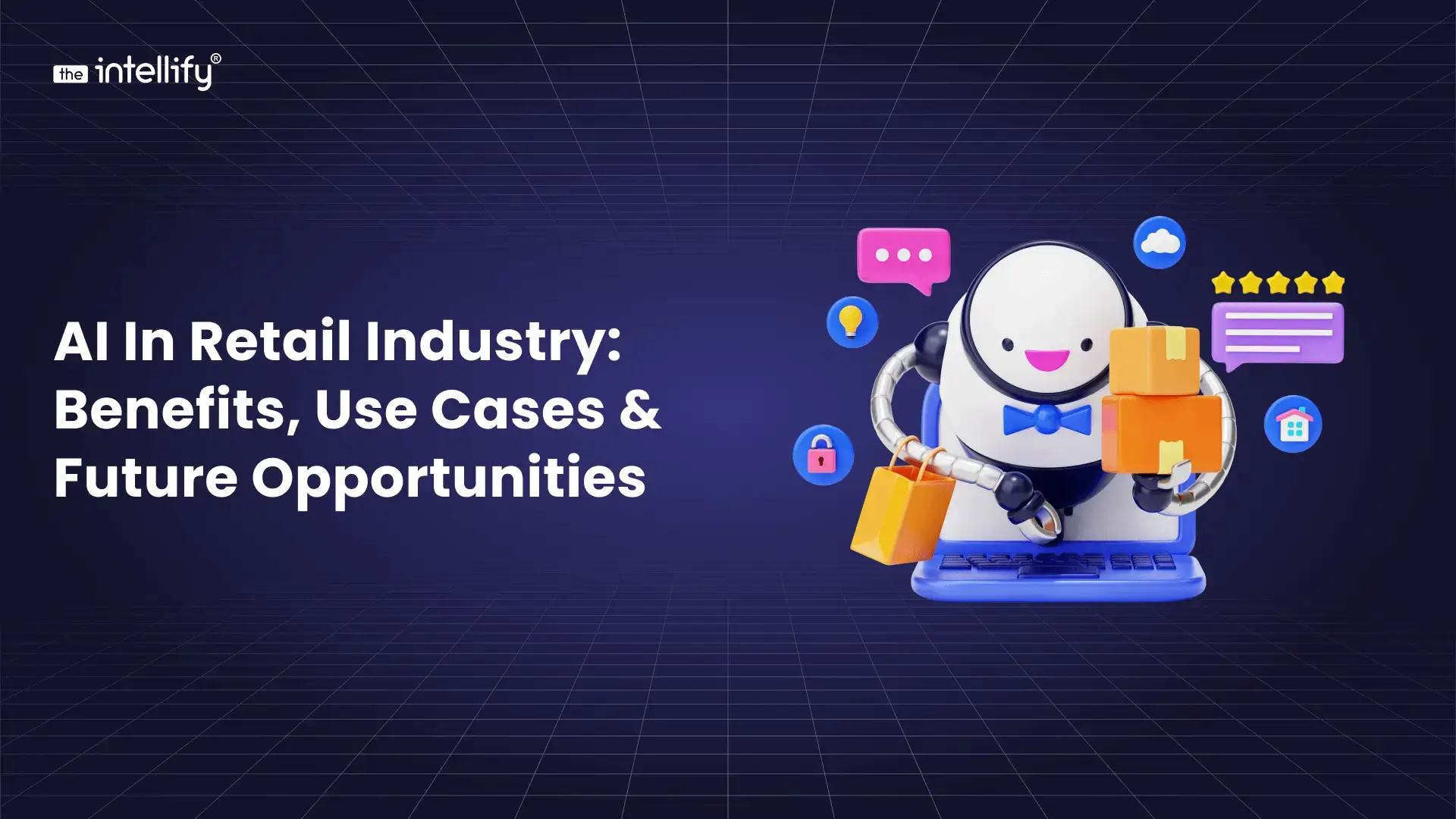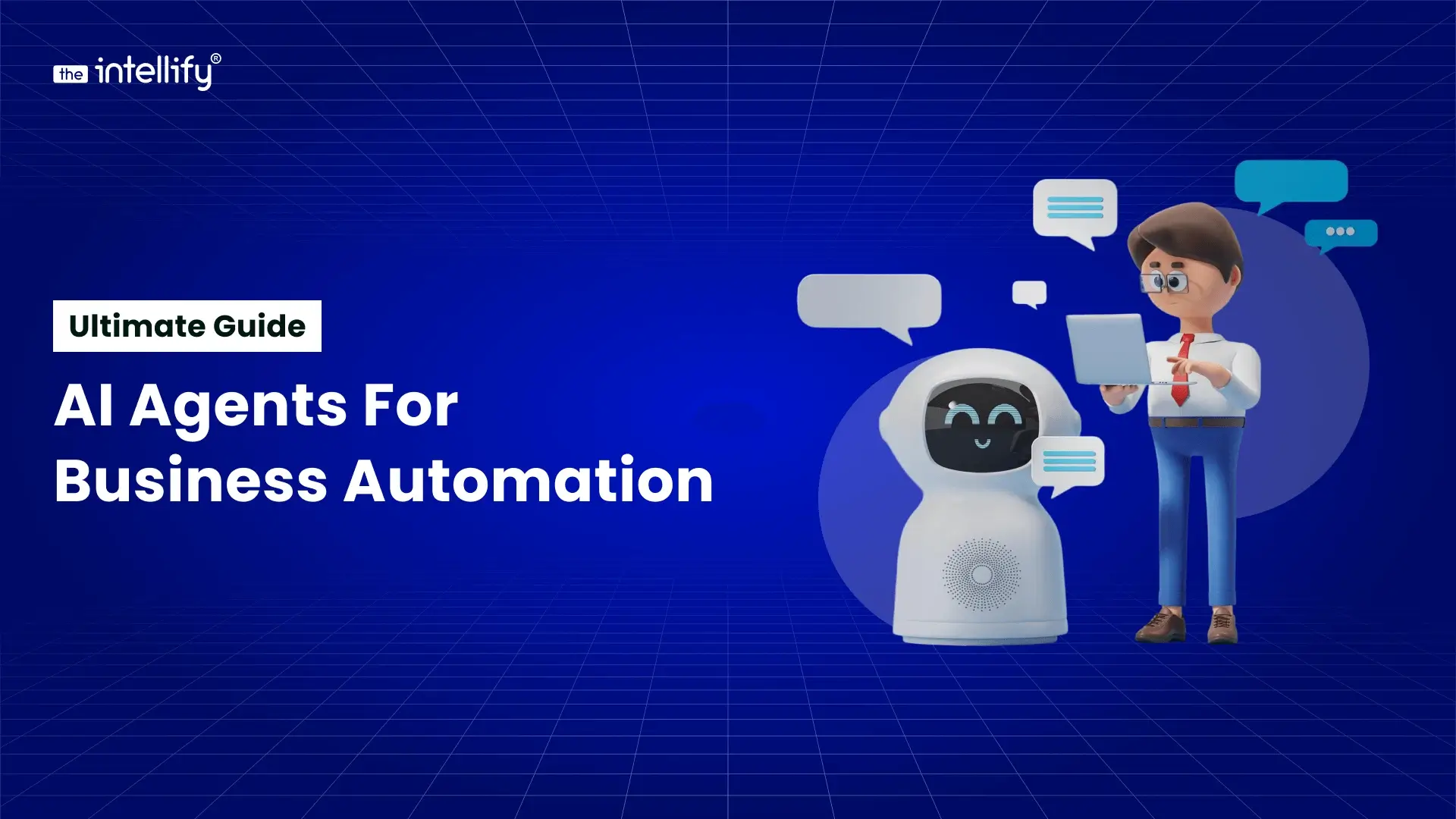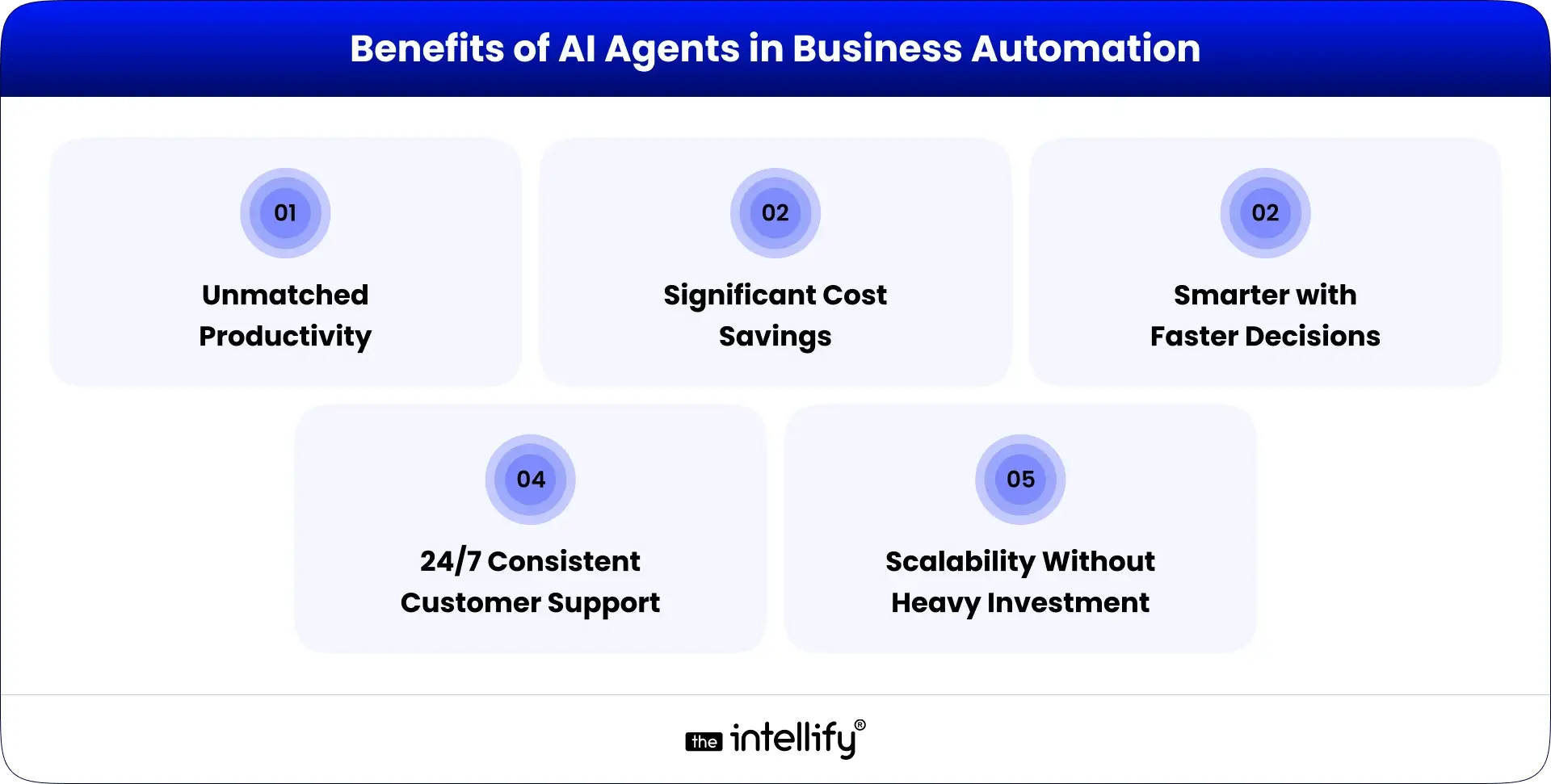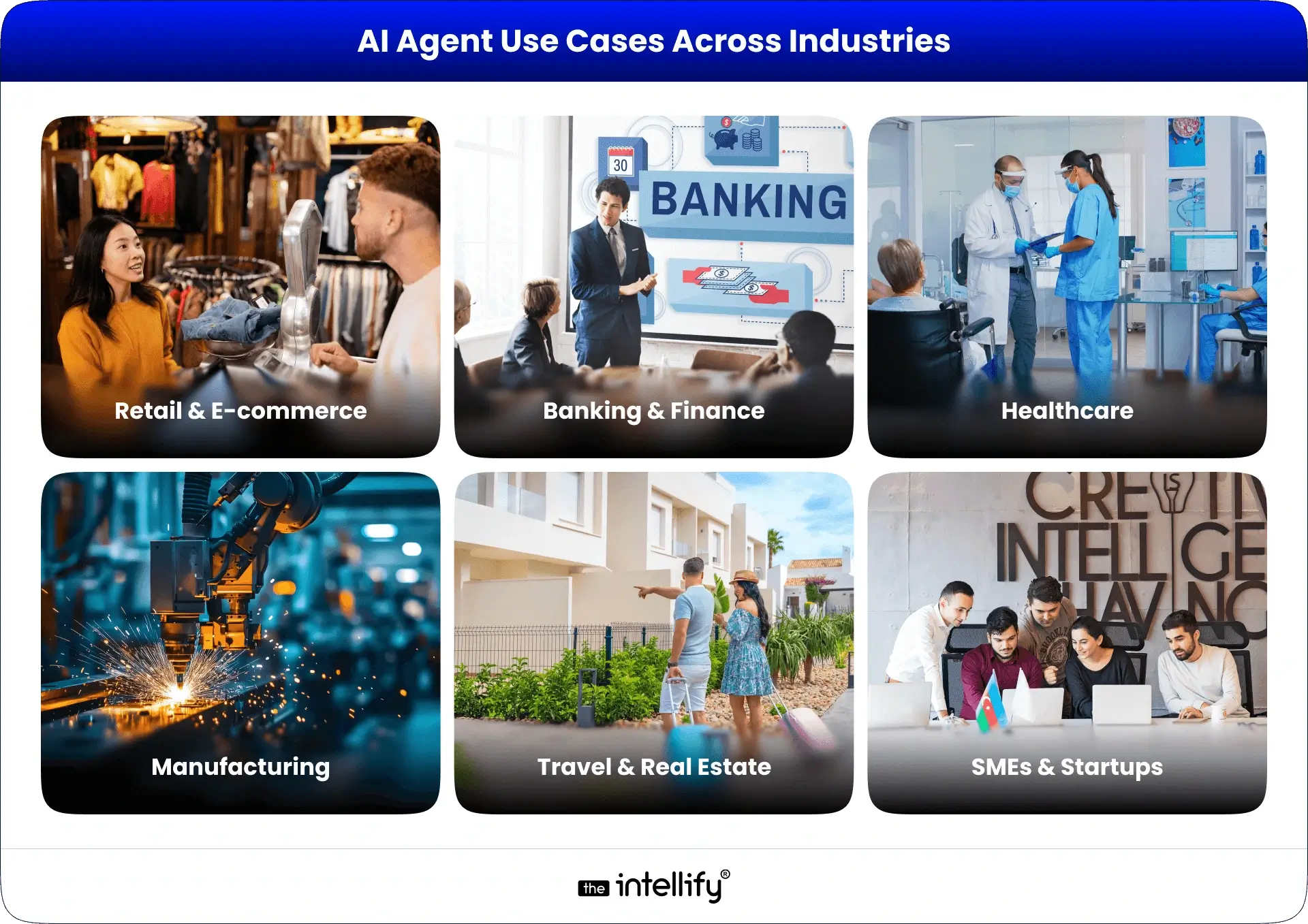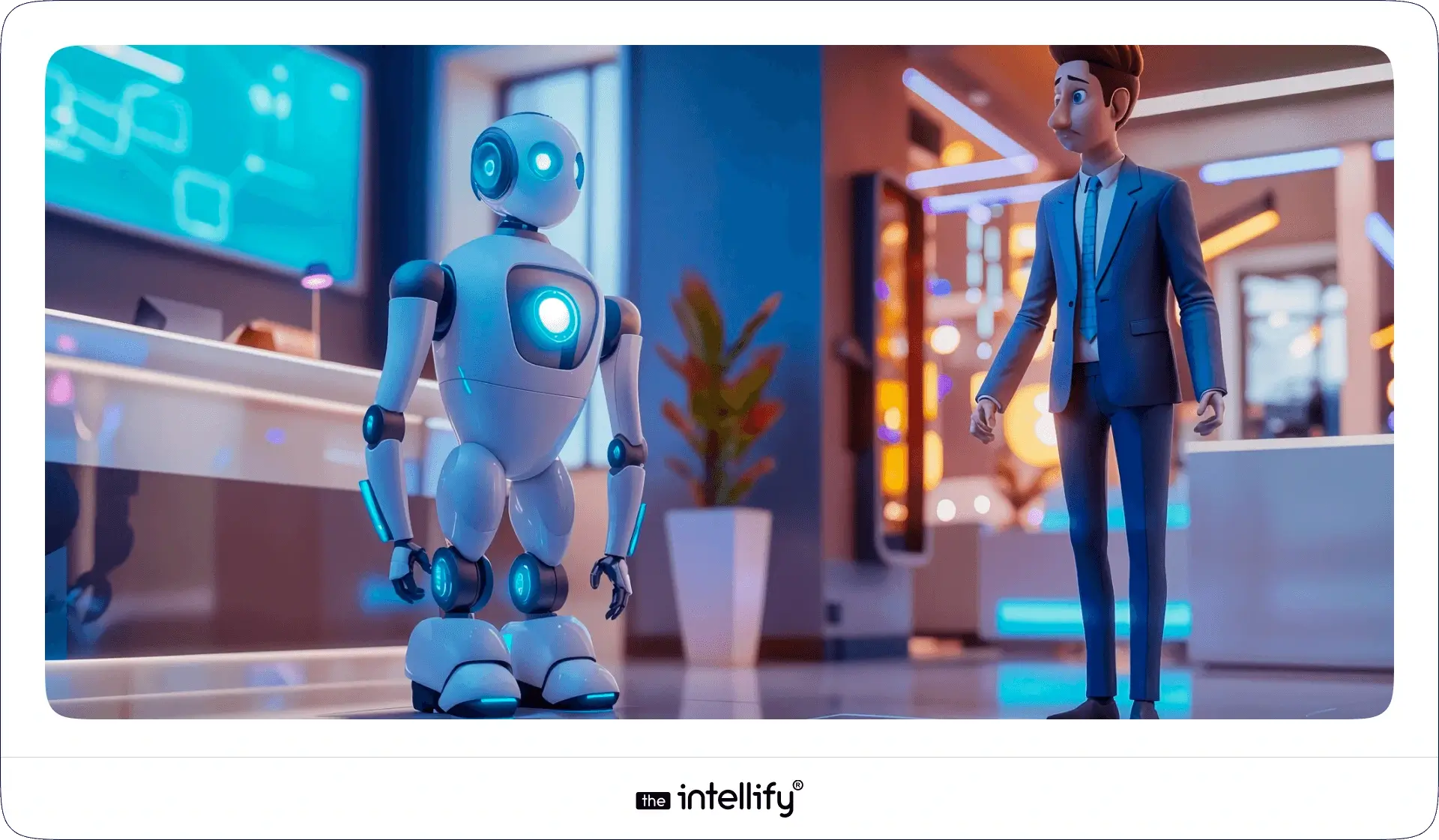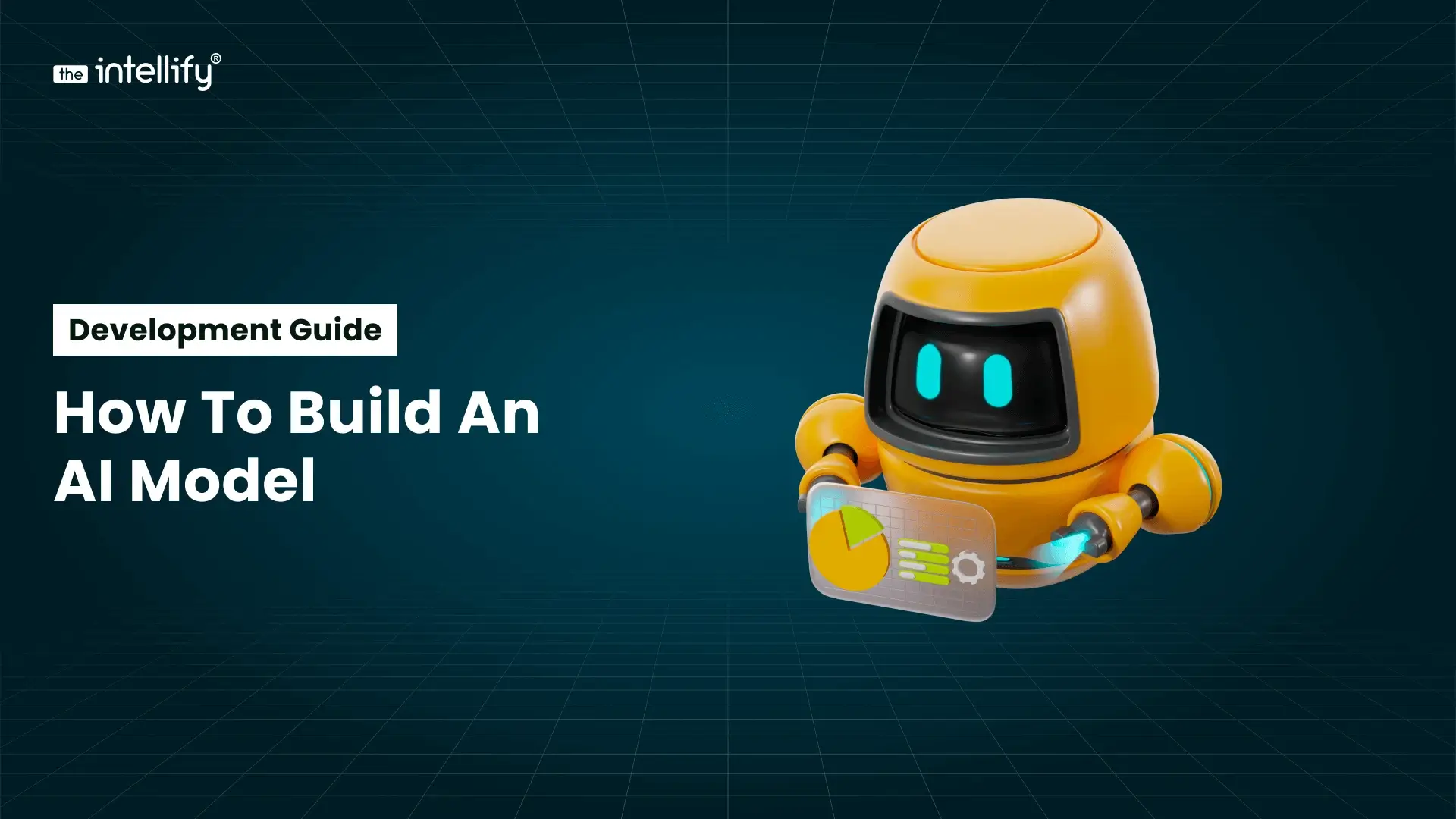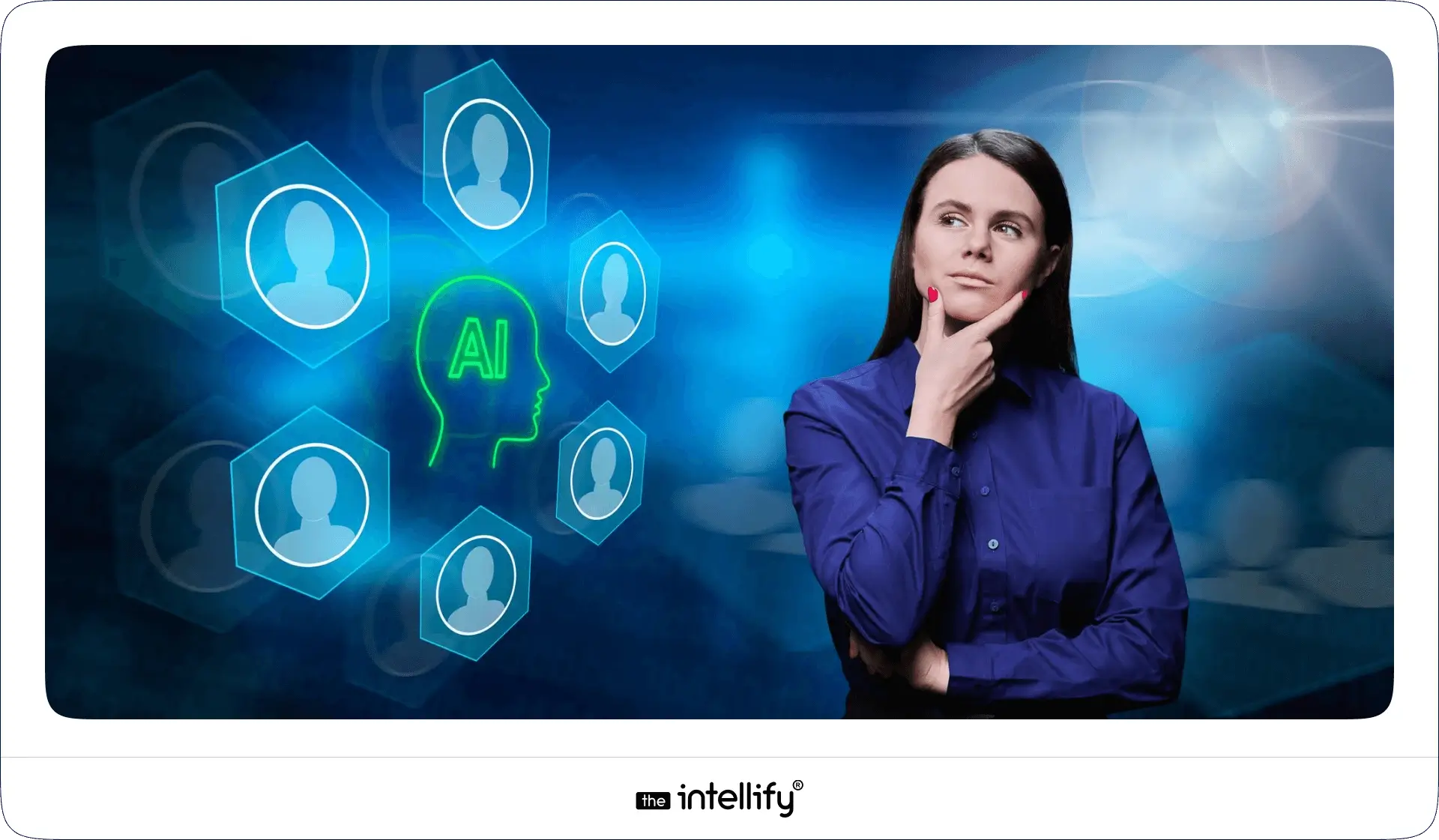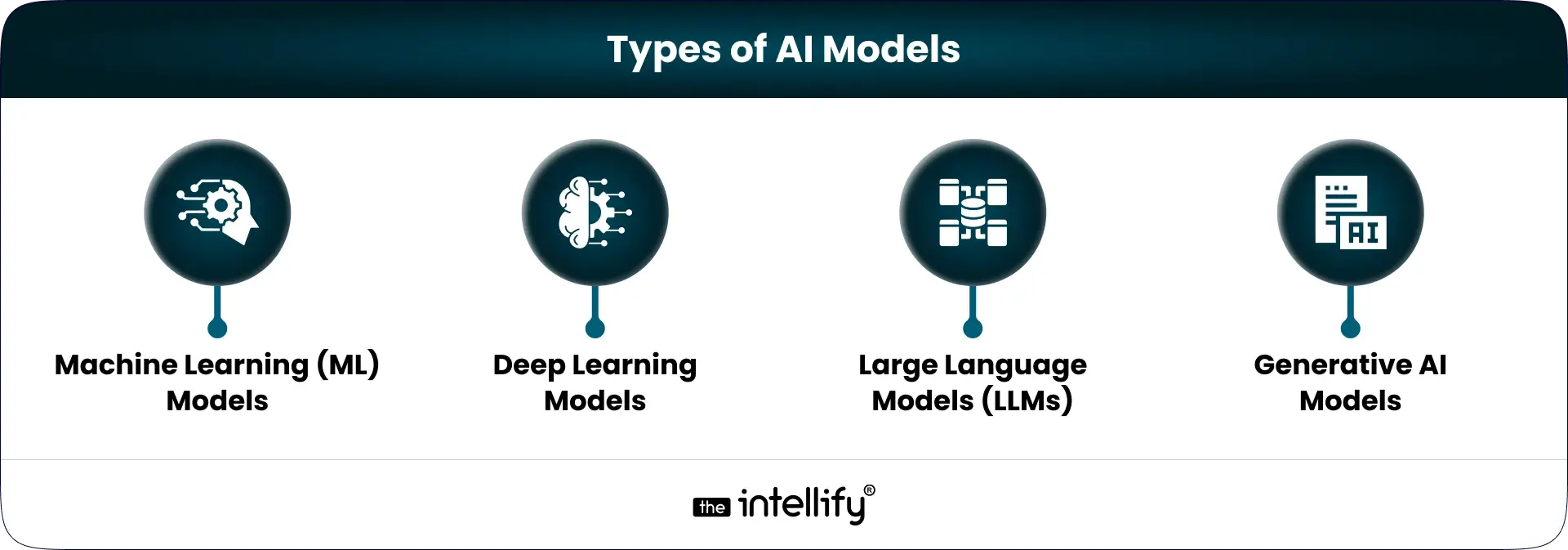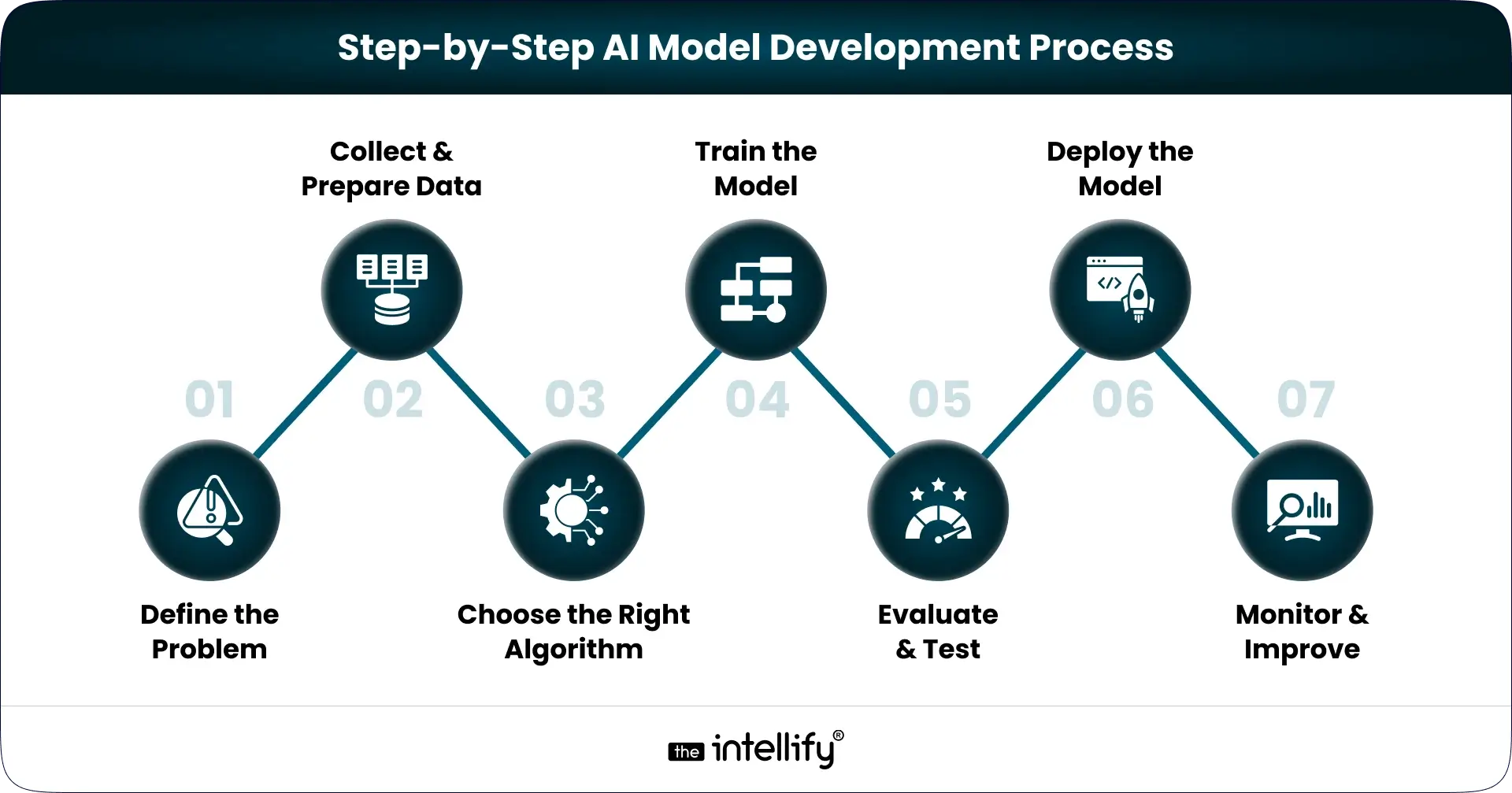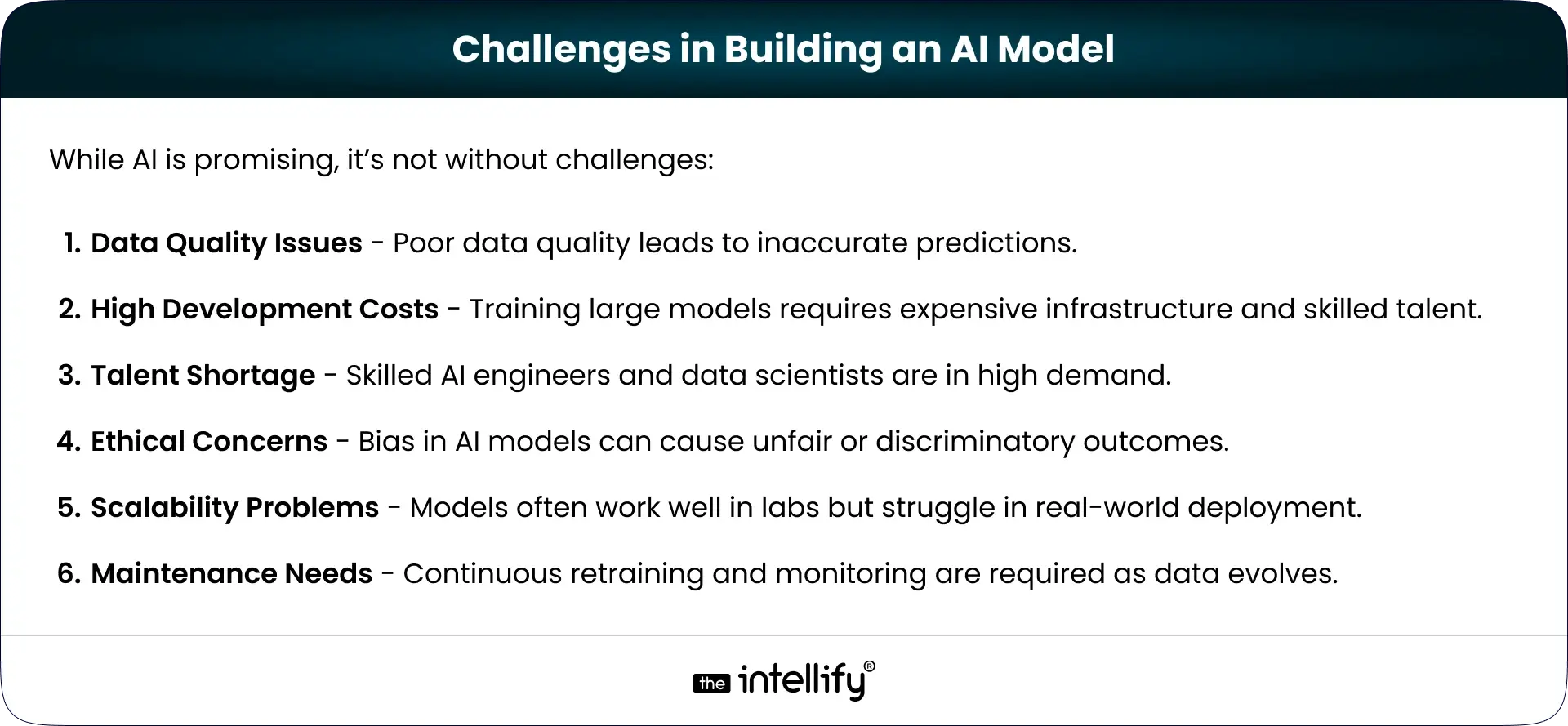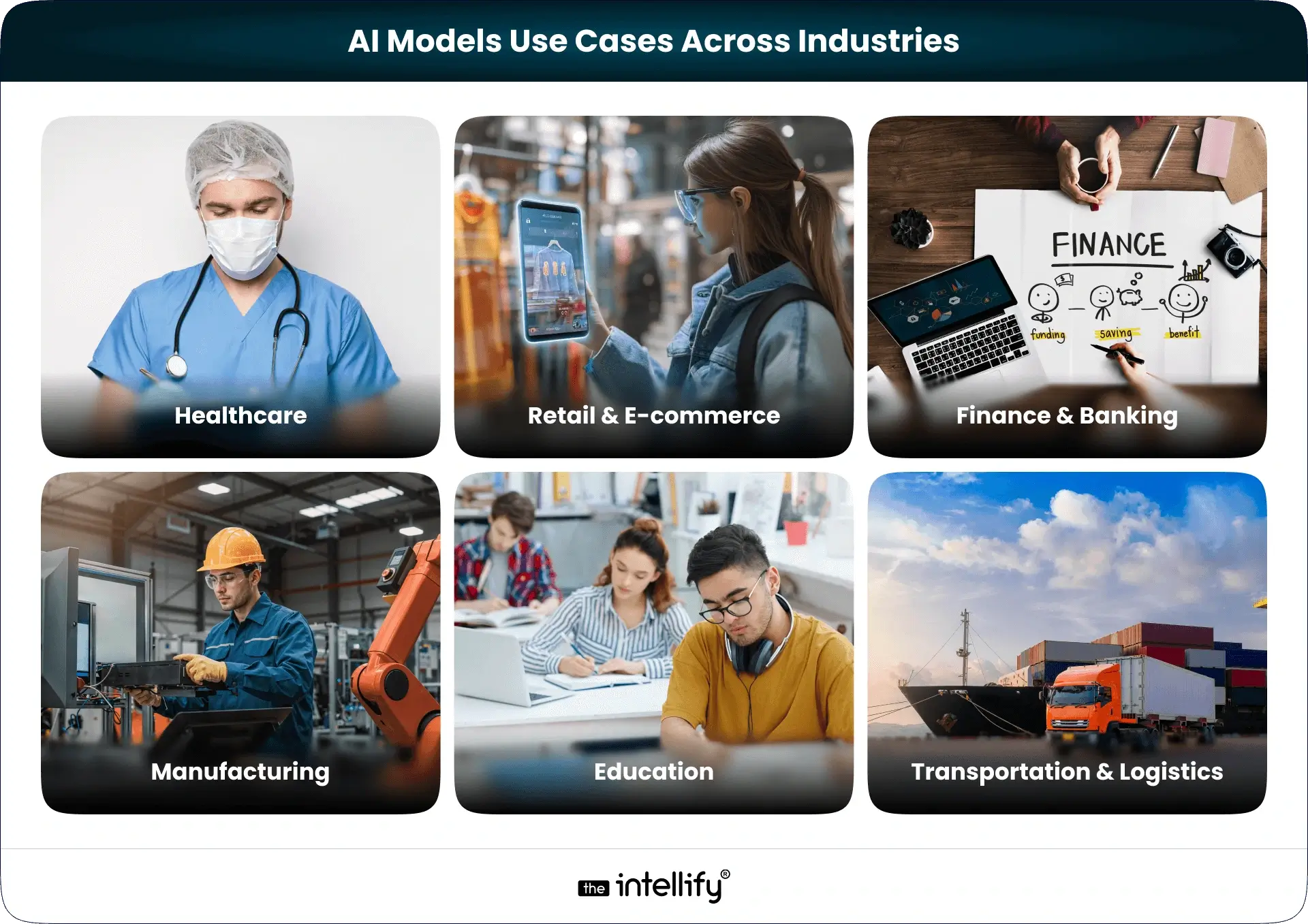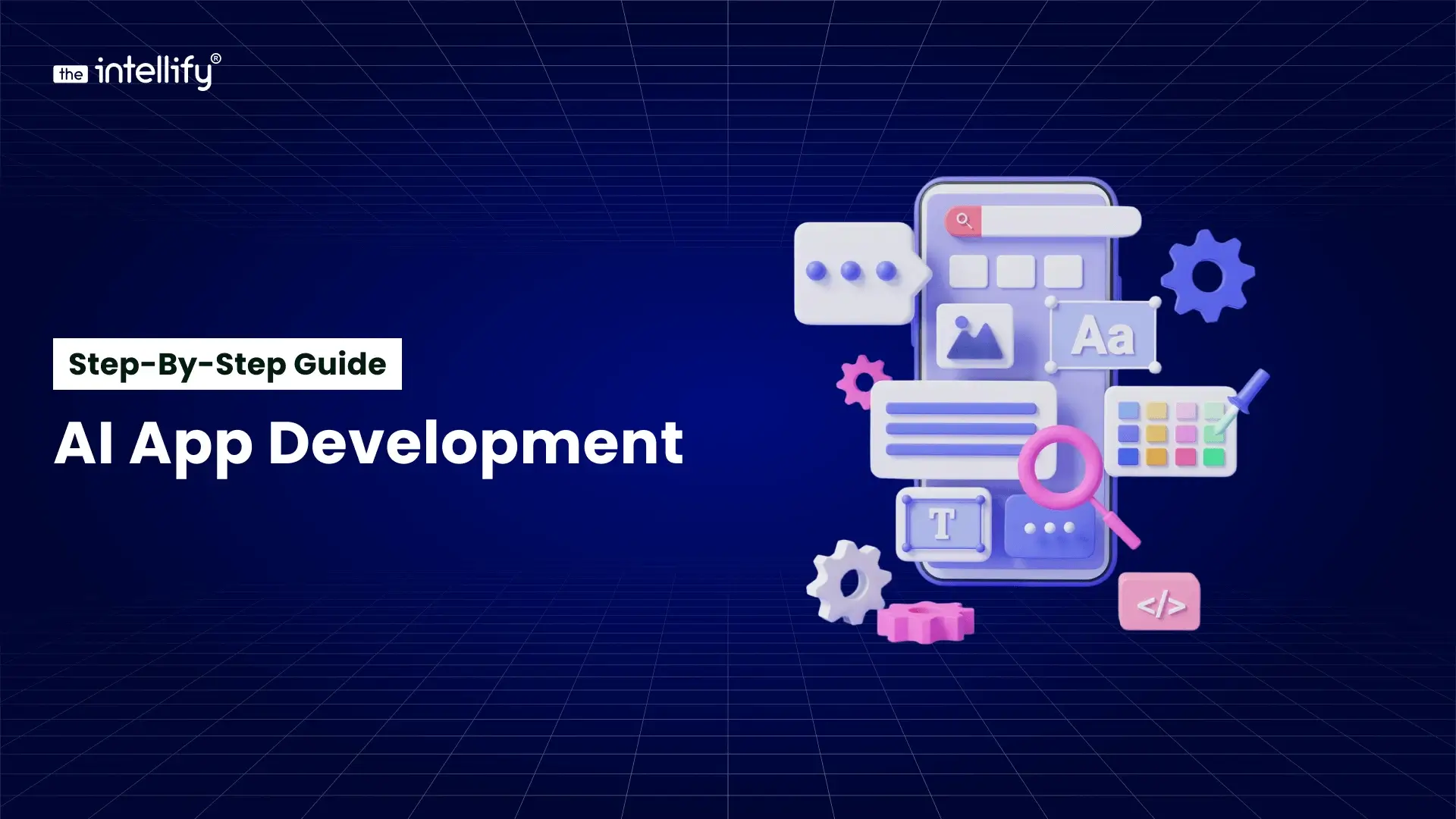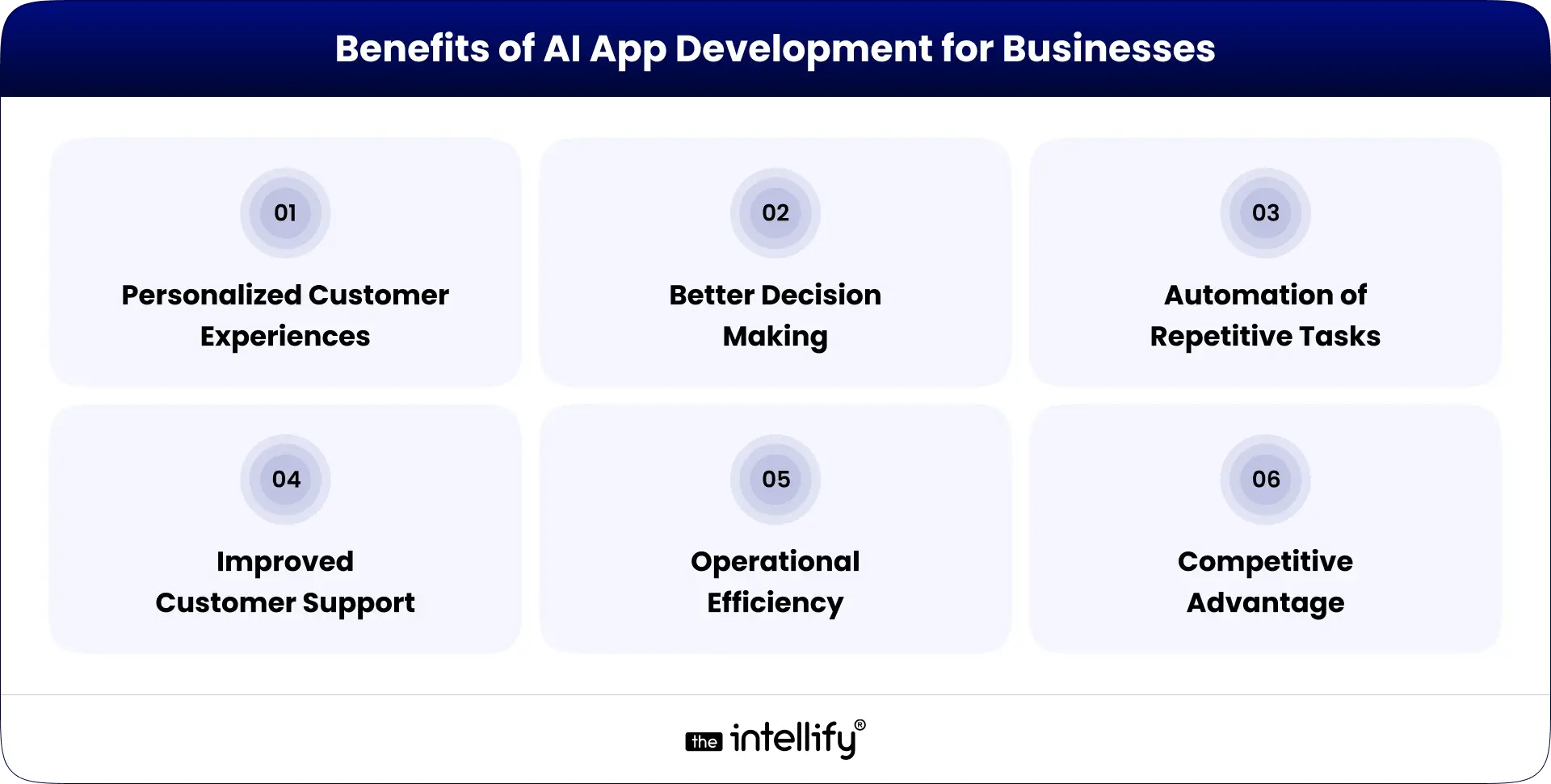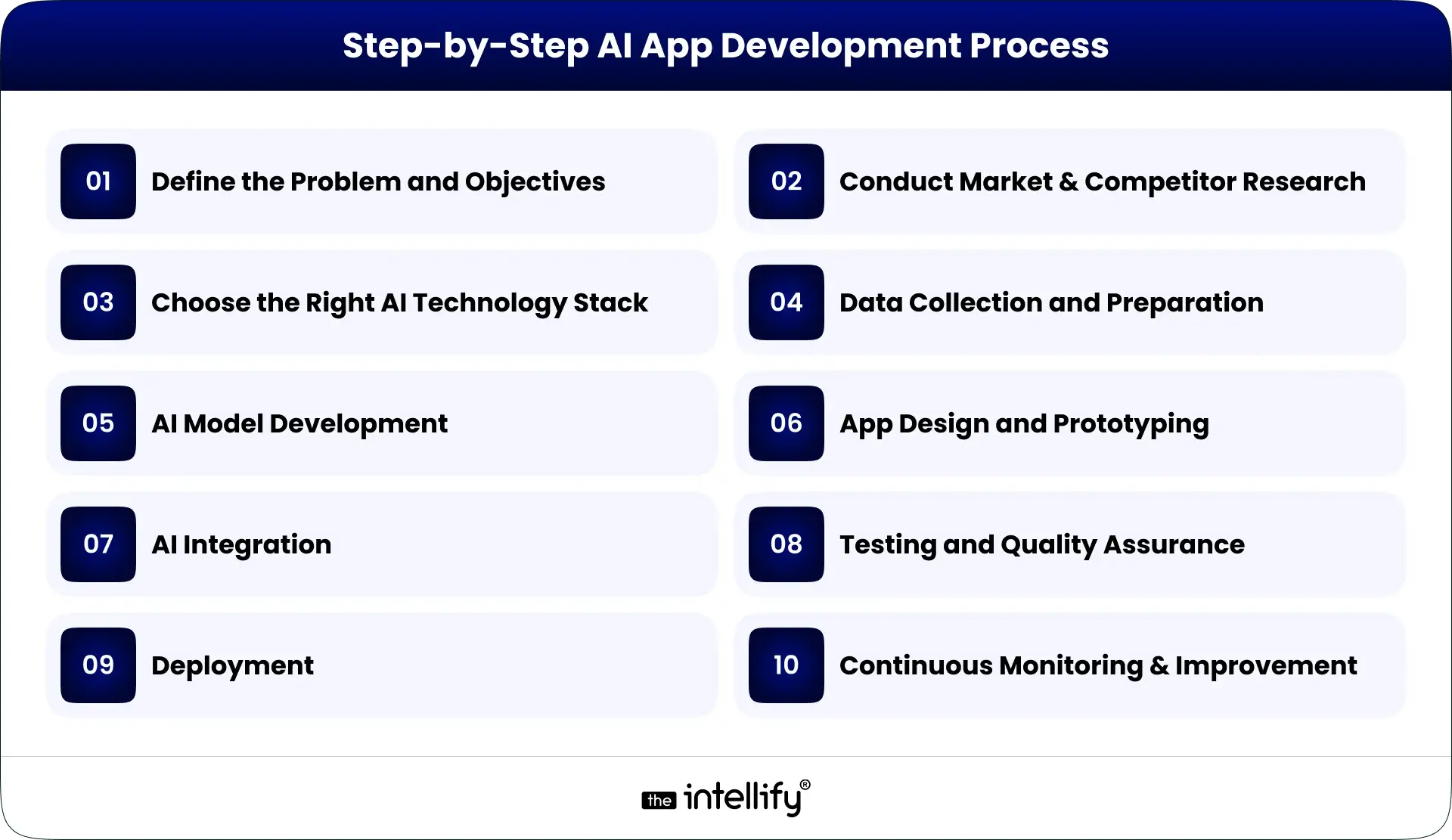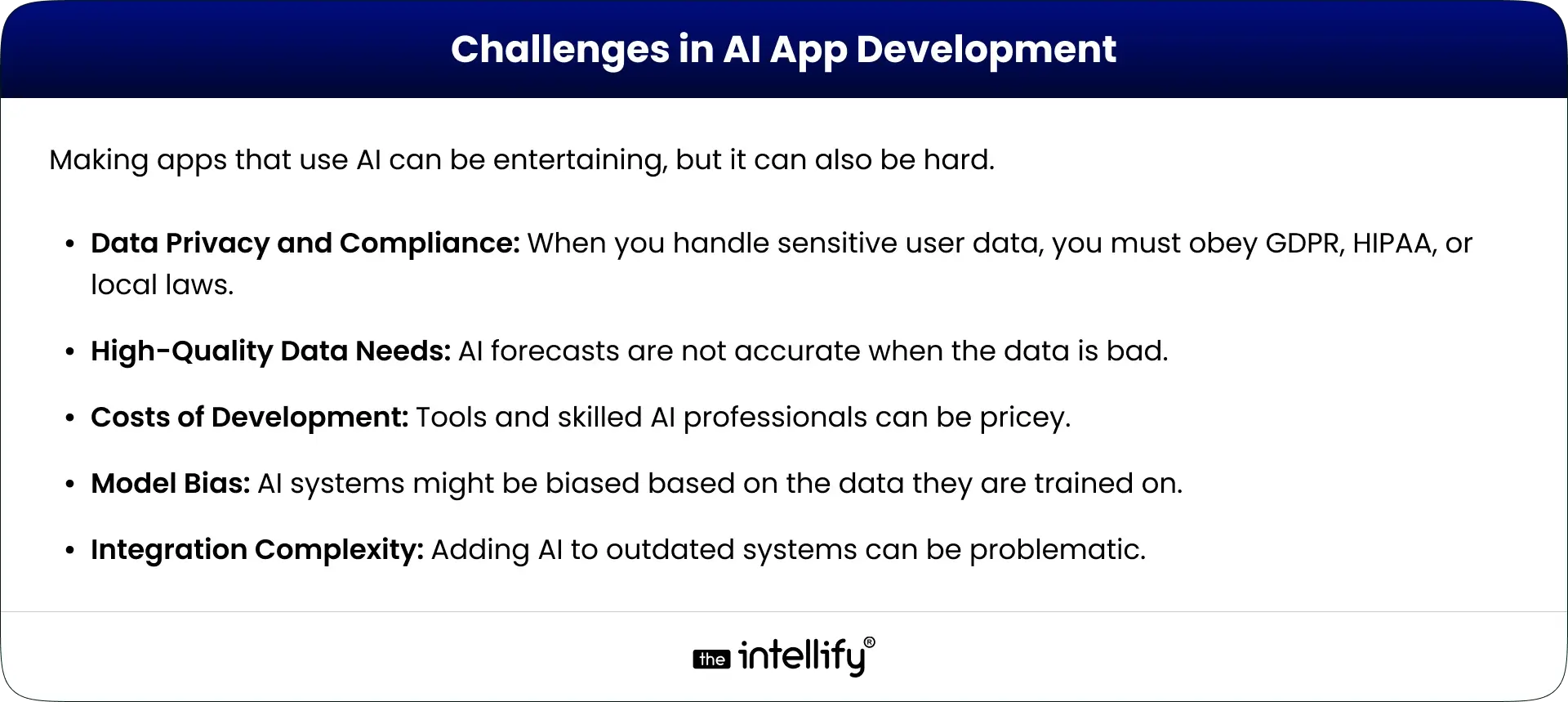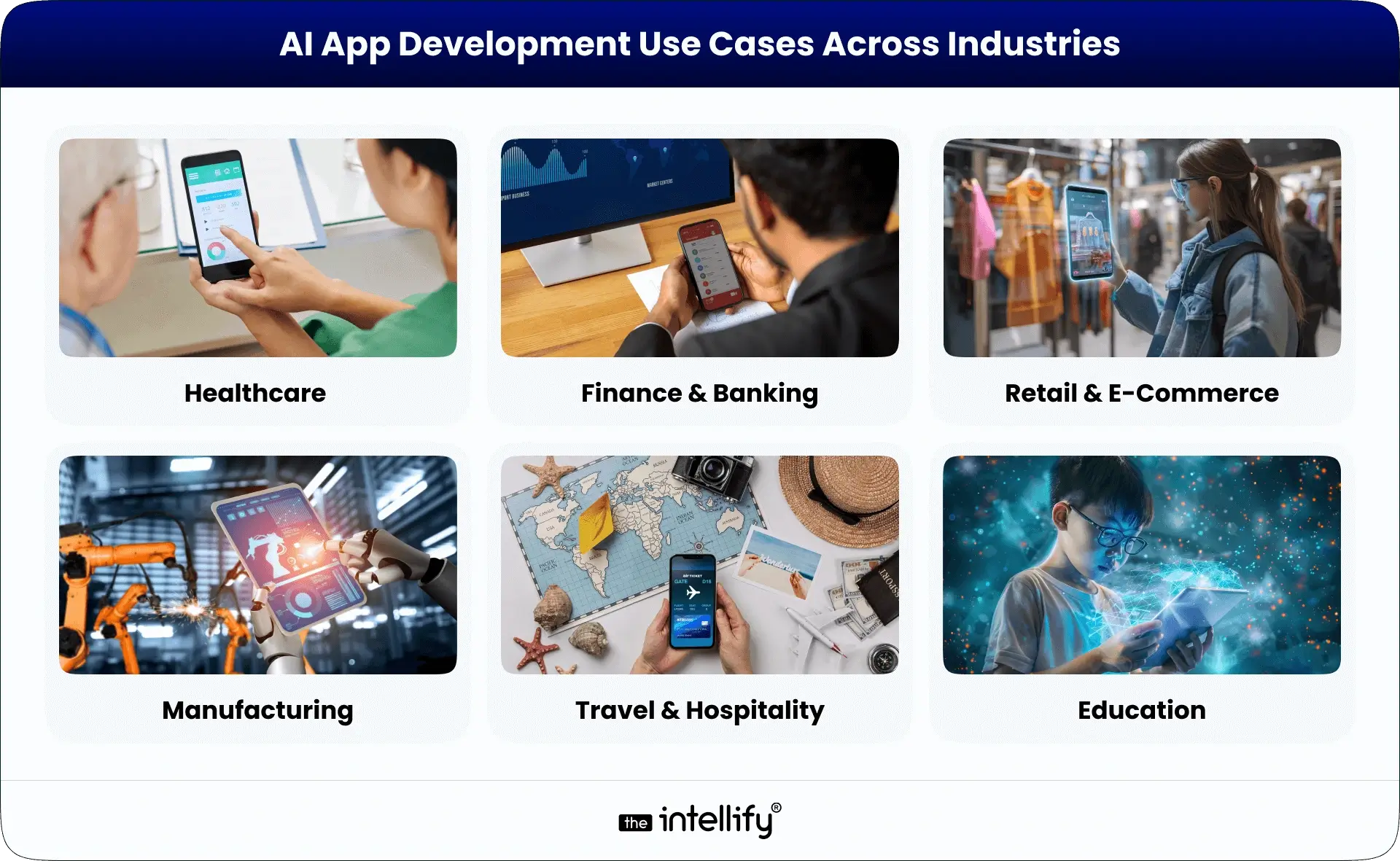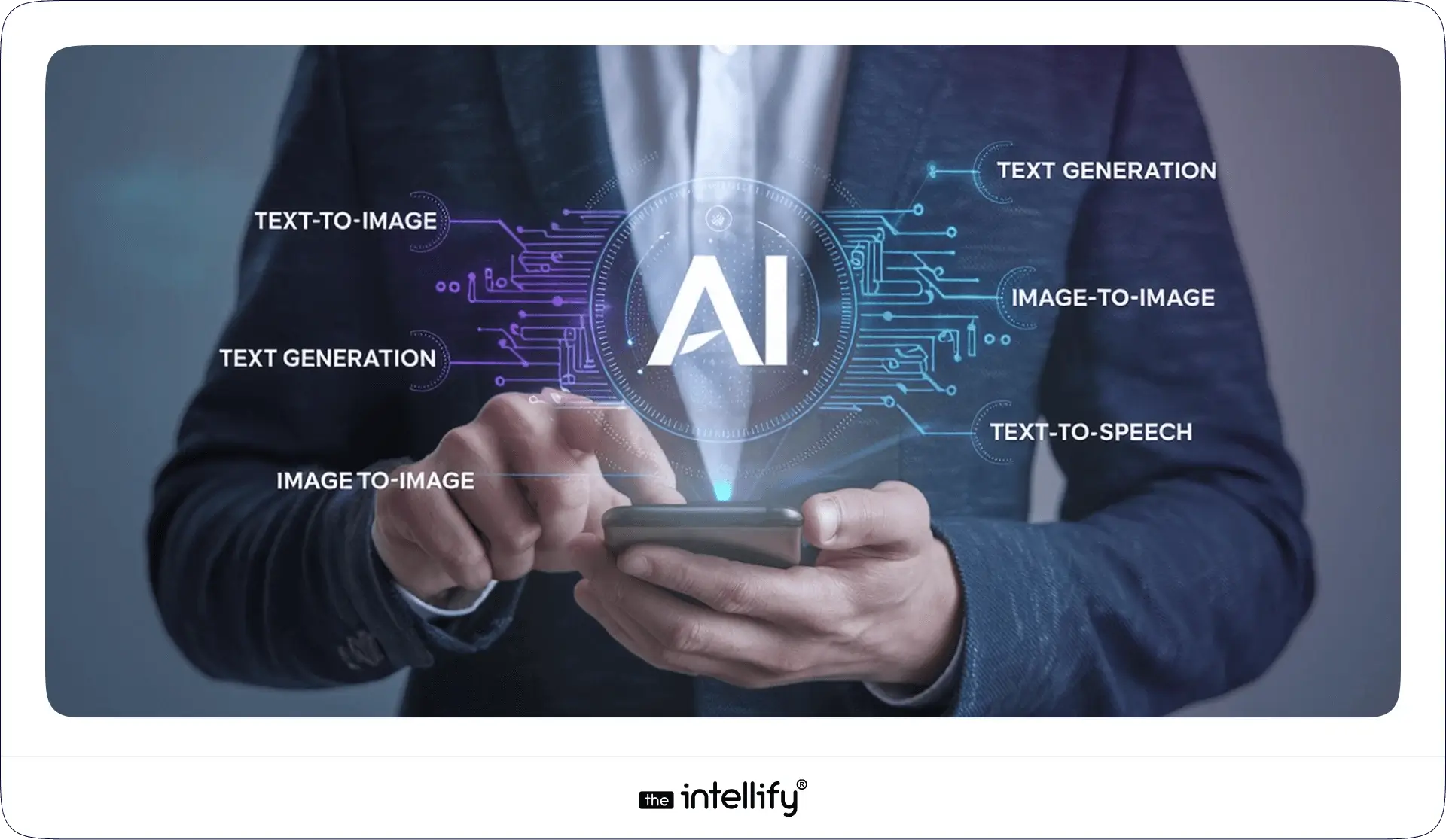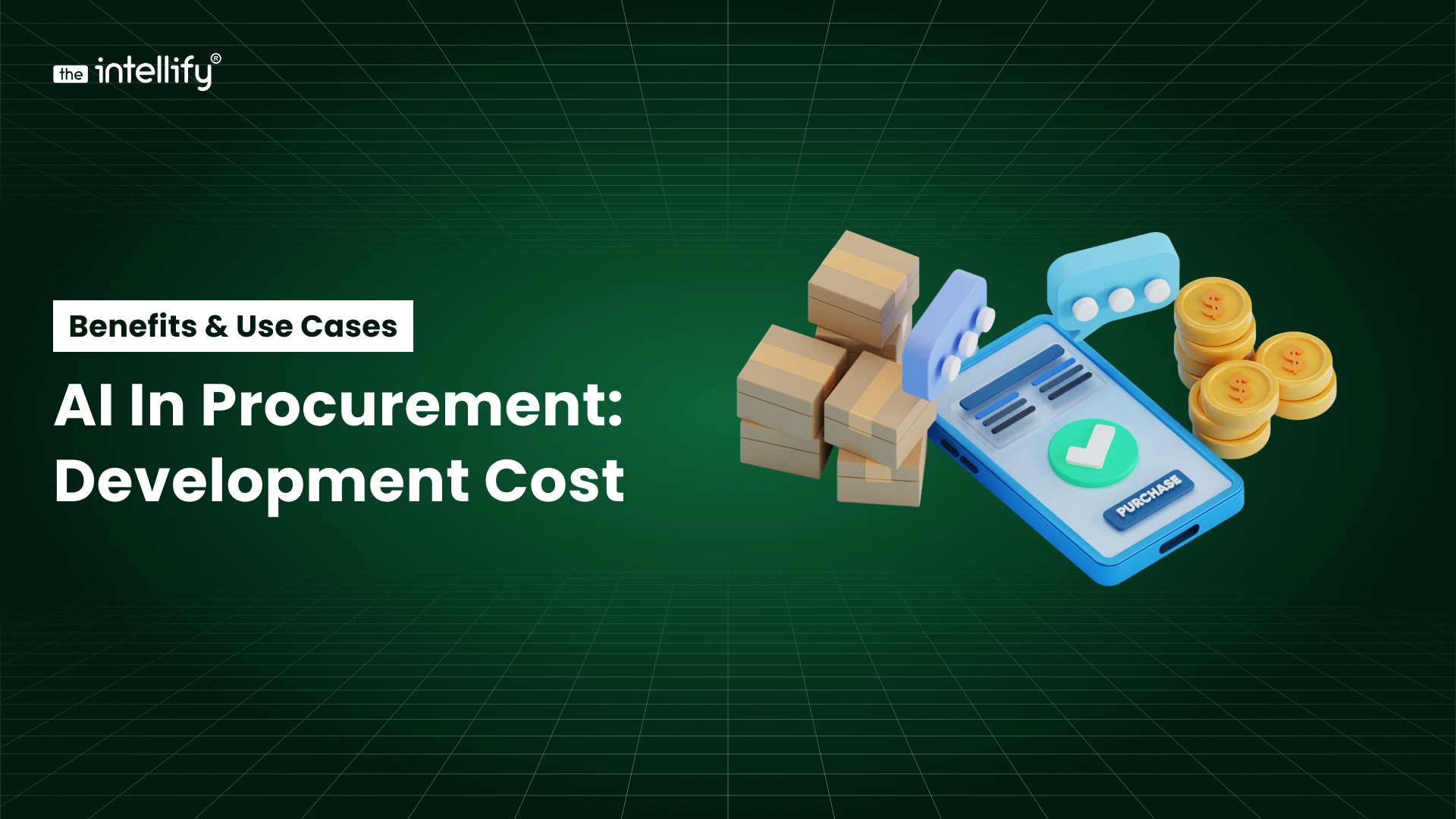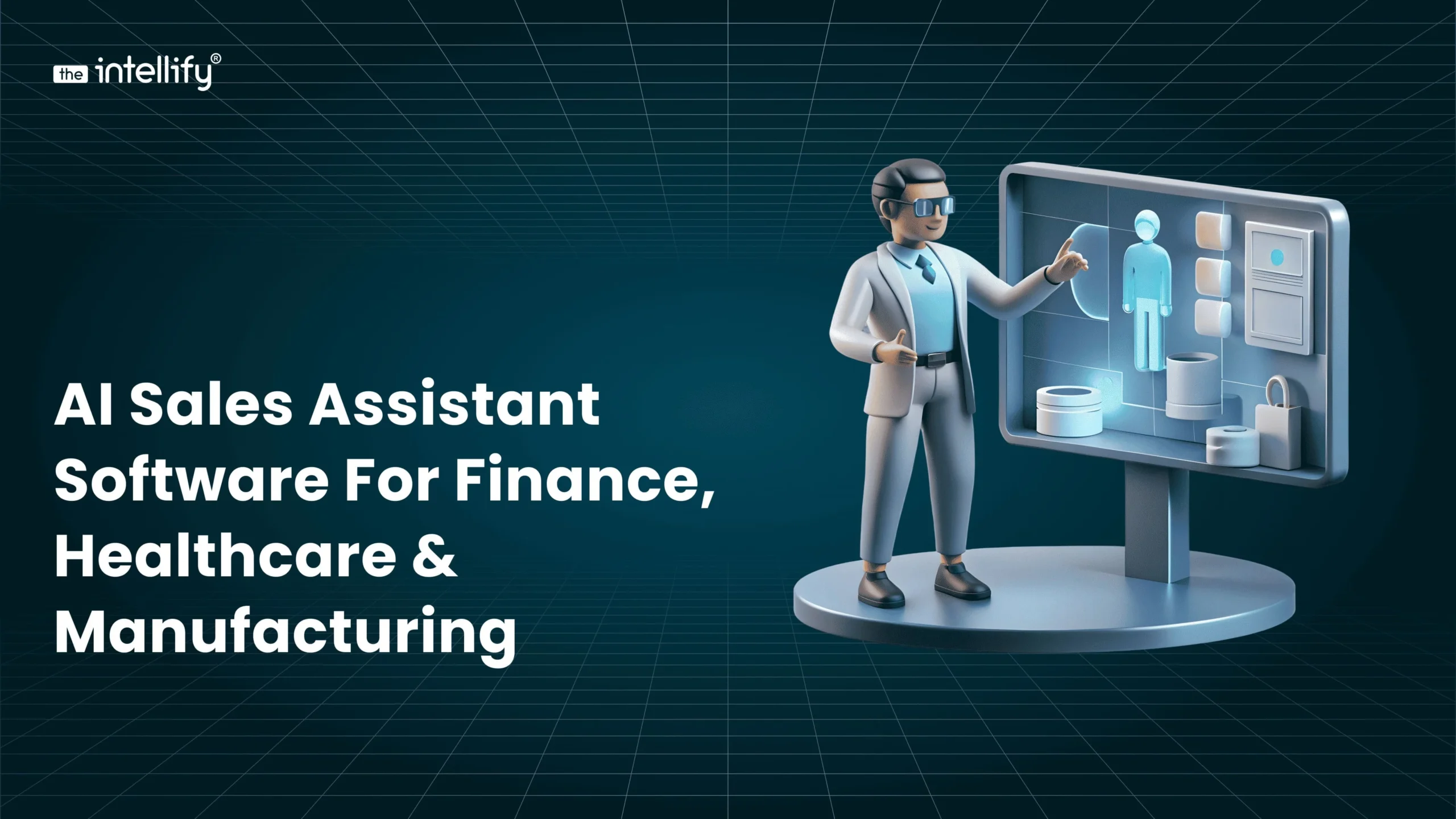Summary
This blog explores the role of AI in retail, highlighting how artificial intelligence is transforming the retail industry. It covers the key benefits, real-world use cases, best practices for integration, and future trends. Readers will also learn how retail businesses can implement AI solutions effectively with The Intellify to enhance customer experiences, optimize operations, and drive growth.
Artificial Intelligence (AI) is no longer a futuristic idea in retail, it’s already here, and it’s transforming how businesses operate and how customers shop. From personalized recommendations to smarter inventory management, AI is helping retailers make faster, smarter decisions and create shopping experiences that truly connect with consumers.
Shoppers today expect convenience, speed, and personalization. AI gives retailers the tools to meet these expectations while reducing costs and improving efficiency. In this blog, we’ll explore the role of AI in retail, its benefits, real-world use cases, best practices for integration, and what the future holds, plus how you can implement AI solutions effectively with The Intellify.
What Is the Role of AI in Retail?
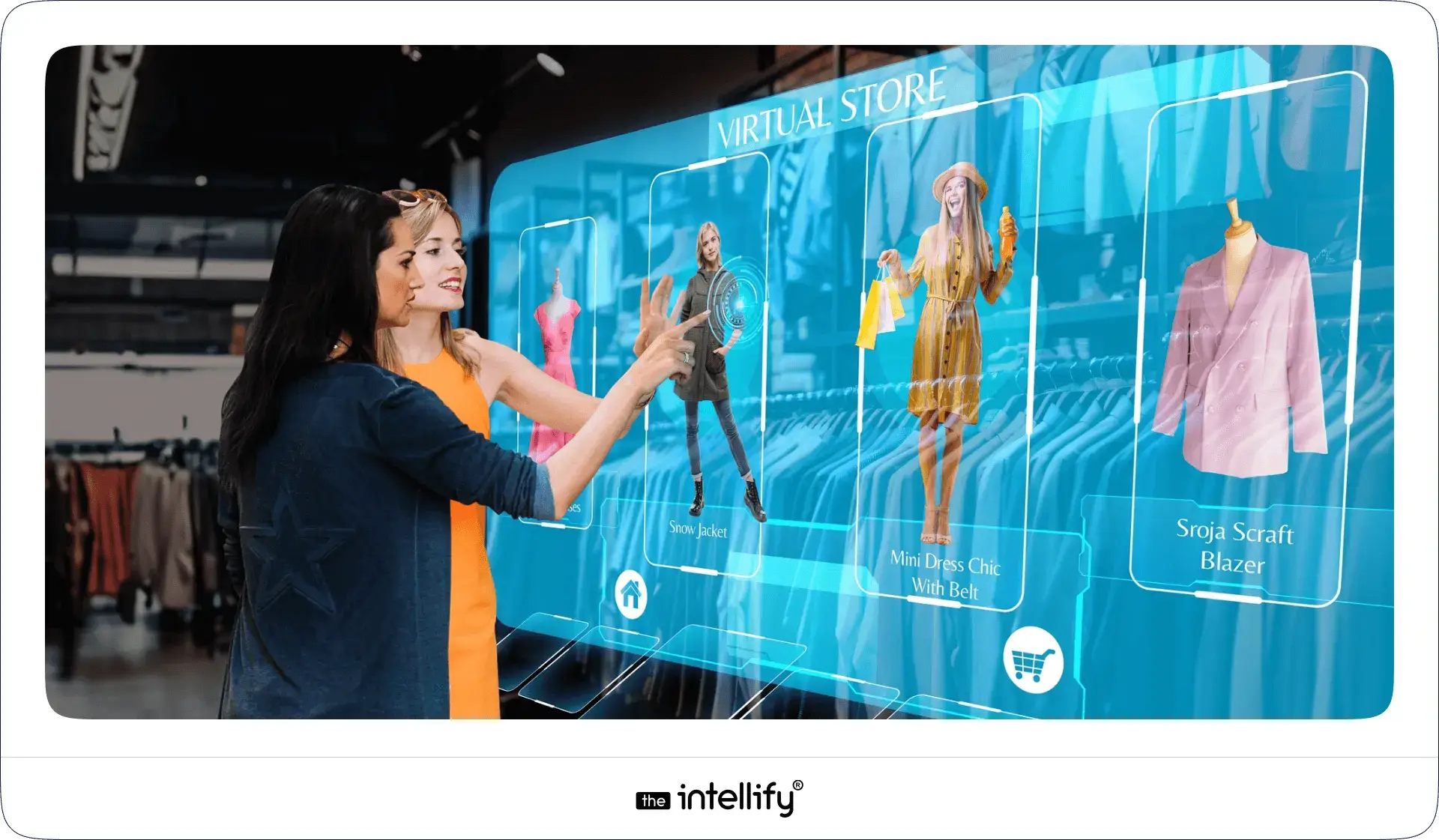
AI in retail is all about using technology to analyze data, predict trends, and automate tasks. This includes tools like machine learning, computer vision, and natural language processing.
In practical terms, AI helps retailers:
- Understand customer preferences and behaviors
- Optimize inventory and supply chains
- Automate repetitive tasks
- Improve customer service
The role of AI is to turn data into actionable insights. It’s the brain behind smarter decisions, helping retailers deliver better experiences, reduce waste, and stay competitive.
How Artificial Intelligence Is Changing the Retail Industry
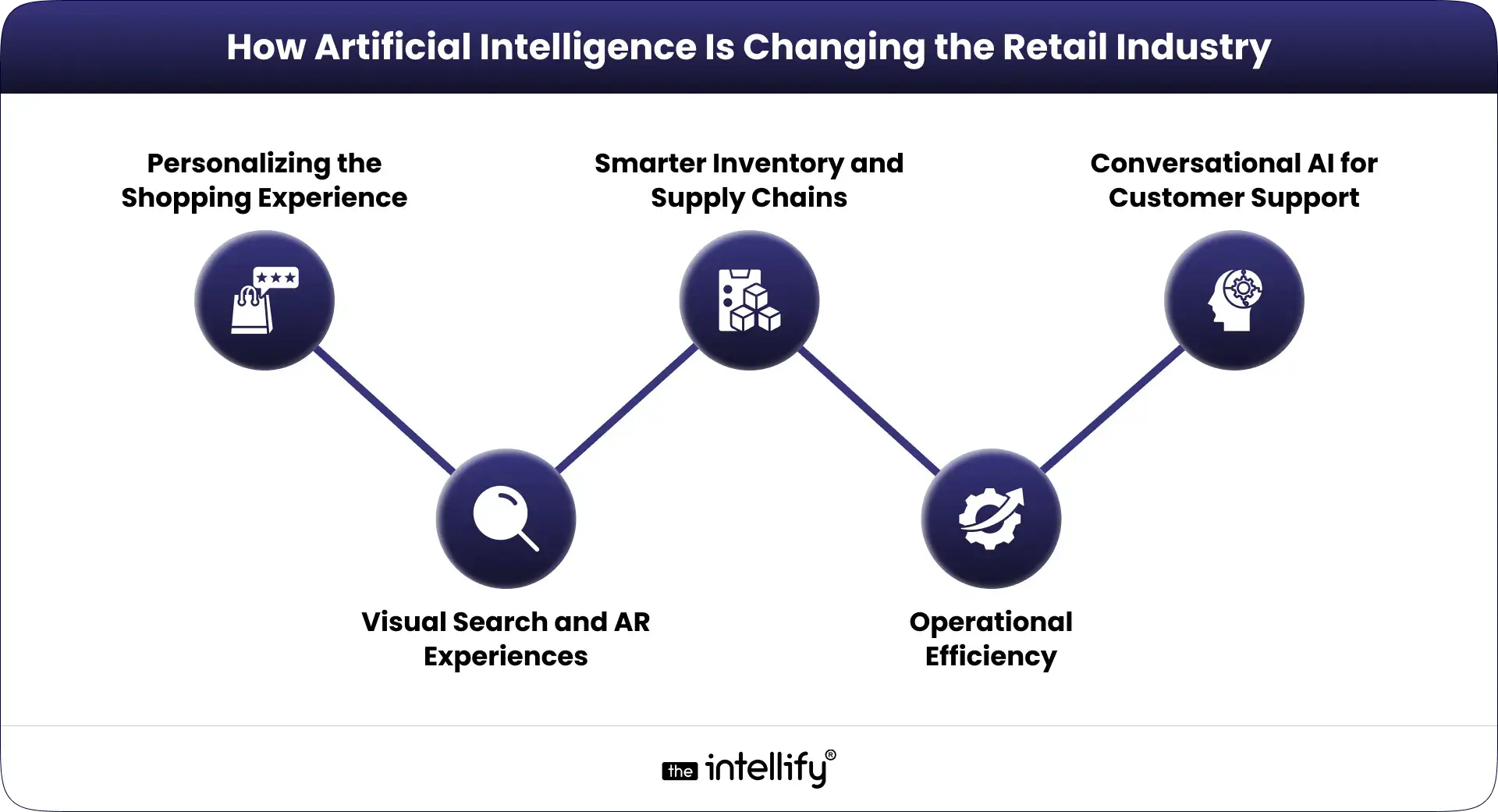
AI is reshaping the retail landscape in ways that touch every aspect of the business. Here’s how:
1. Personalizing the Shopping Experience
AI can track what customers browse, buy, or even linger over in a store. Using this data, retailers can make personalized product recommendations and tailor marketing campaigns to individual shoppers.
2. Smarter Inventory and Supply Chains
By predicting demand more accurately, AI helps prevent stockouts and reduces excess inventory, saving money and keeping customers happy.
3. Conversational AI for Customer Support
Chatbots and virtual assistants powered by AI can handle questions, guide shoppers, and resolve issues 24/7, improving the customer experience while reducing the workload for staff.
4. Visual Search and AR Experiences
Customers can snap a photo of a product they like and instantly find similar items online. AI also powers virtual try-ons for fashion, makeup, and home décor.
5. Operational Efficiency
From automated checkouts to AI-driven shelf monitoring, retailers can optimize operations and reduce human error, saving both time and money.
AI is helping retailers move from reactive strategies to proactive, data-driven decision-making, a shift that is transforming the industry.
Key Benefits of AI in Retail Businesses
AI brings several benefits that impact both the customer experience and business performance:
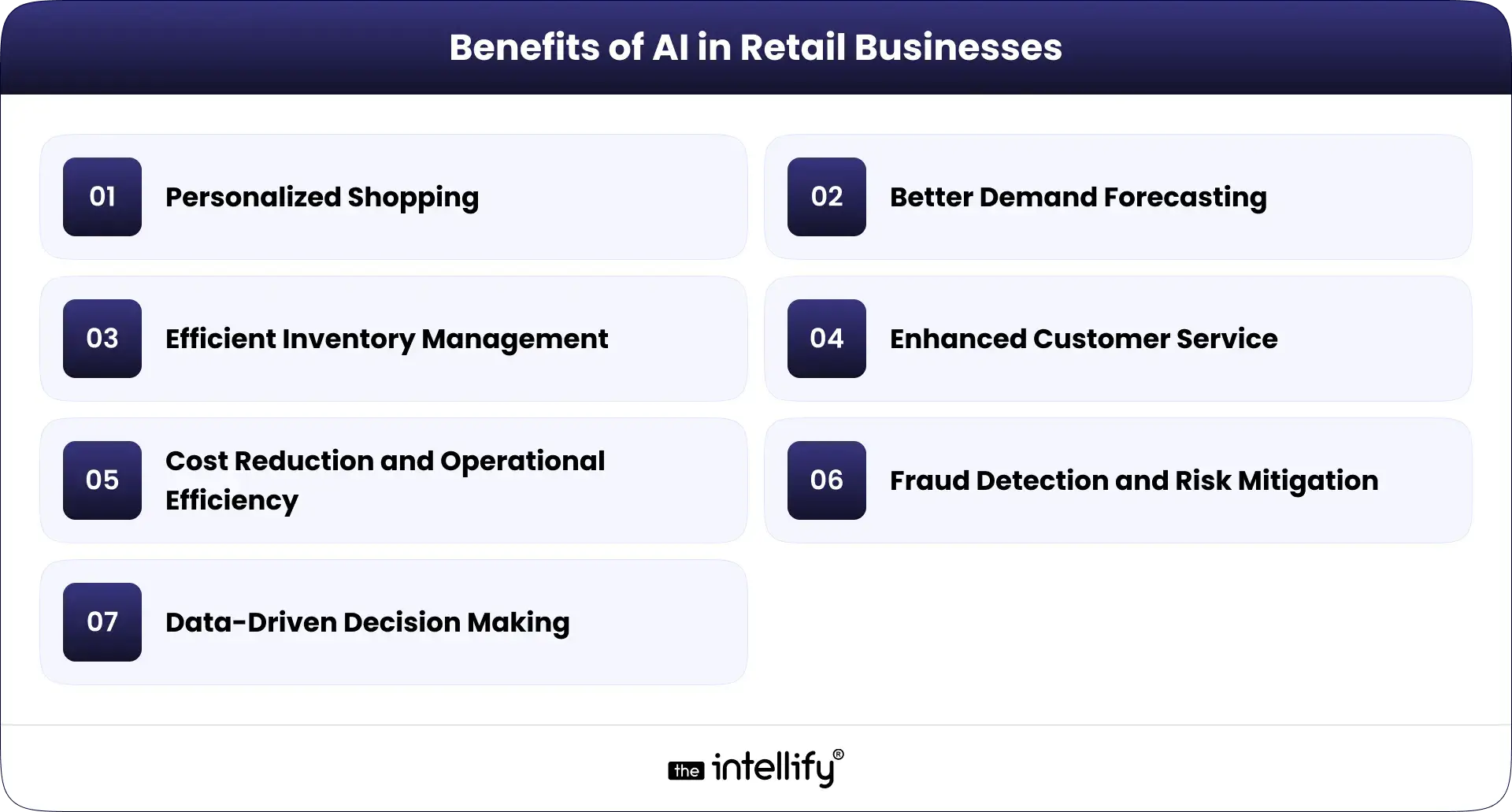
1. Personalized Shopping: AI tailors product recommendations, promotions, and pricing based on individual shopper behavior. This improves engagement, loyalty, and conversion rates.
2. Better Demand Forecasting: By analyzing sales patterns and external factors, AI predicts trends and ensures the right products are available at the right time.
3. Efficient Inventory Management: AI tracks stock levels in real-time, alerts managers to shortages, and automates reordering, reducing waste and costs.
4. Enhanced Customer Service: AI chatbots and virtual assistants provide instant support across websites, apps, and in-store kiosks, ensuring consistent service.
5. Cost Reduction and Operational Efficiency: Automation reduces repetitive tasks, streamlines processes, and minimizes errors, allowing staff to focus on strategic tasks.
6. Fraud Detection and Risk Mitigation: AI monitors transactions for unusual patterns, helping prevent fraud and enhancing security.
7. Data-Driven Decision Making: Retail leaders can use AI insights to make faster, smarter decisions, from marketing to merchandising.
Artificial Intelligence in Retail Use Cases
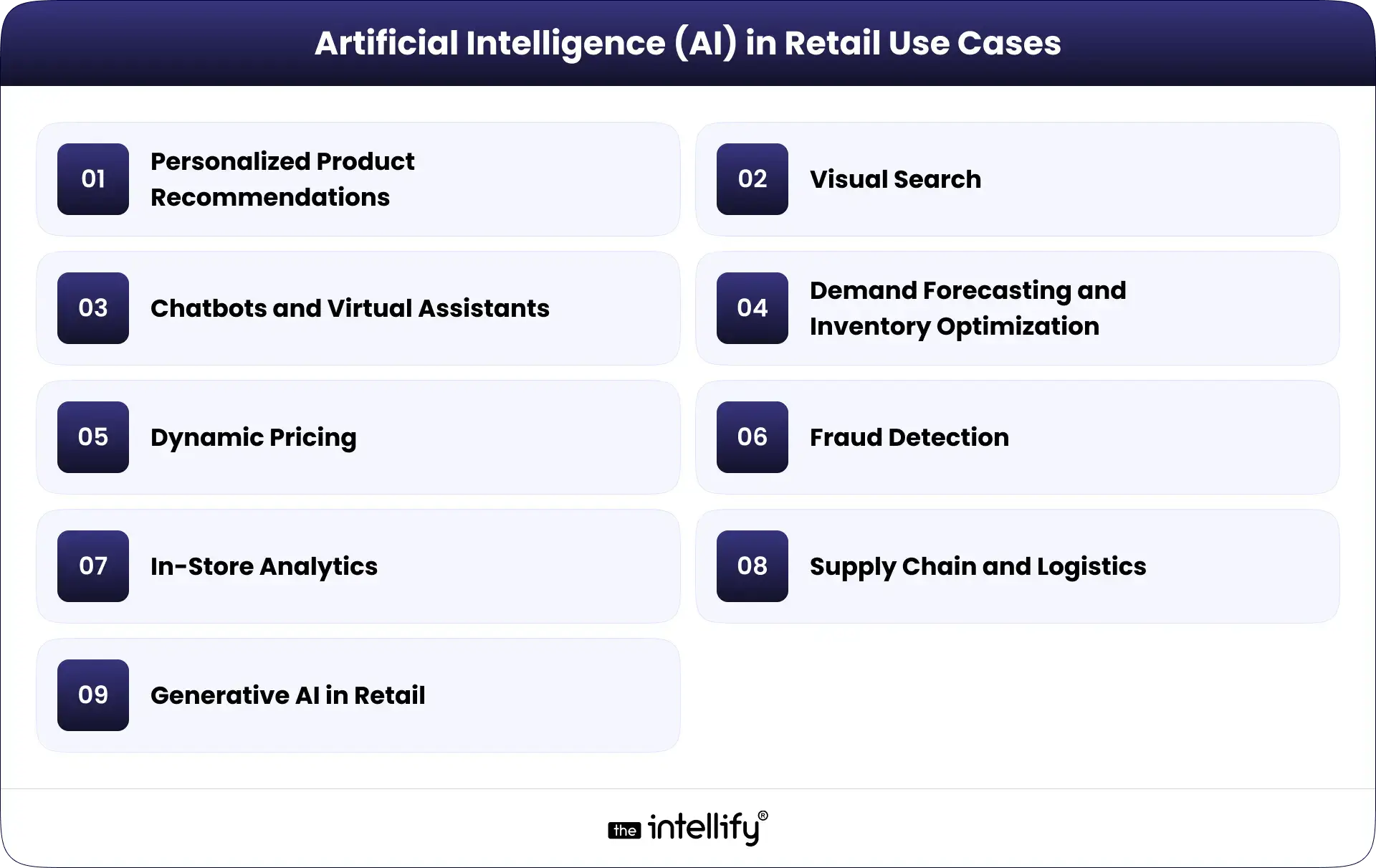
AI is no longer theoretical, it’s being used in real-world retail operations every day. Here are the key use cases:
1. Personalized Product Recommendations
Platforms like Netflix and Amazon uses AI to suggest products based on browsing and purchase history, boosting sales and engagement.
2. Visual Search
AI-powered visual search allows shoppers to upload a picture and instantly find similar products, simplifying discovery.
3. Chatbots and Virtual Assistants
Retailers use AI chatbots for product suggestions, order tracking, and answering questions. These bots can operate 24/7, improving convenience for shoppers.
4. Demand Forecasting and Inventory Optimization
AI predicts future demand using historical data, seasonal trends, and market insights, preventing overstock and stockouts.
5. Dynamic Pricing
AI adjusts product prices in real time based on demand, competitor pricing, and customer behavior, maximizing revenue and competitiveness.
6. Fraud Detection
AI monitors transactions and identifies unusual patterns, helping prevent fraud before it impacts customers or the business.
7. In-Store Analytics
AI-powered sensors and cameras analyze foot traffic, monitor hot spots, and provide insights into shopper behavior for better store layout and marketing.
8. Supply Chain and Logistics
AI optimizes warehouse operations, delivery routes, and inventory allocation, improving speed and reducing costs.
9. Generative AI in Retail
Some retailers utilize generative AI to create product designs, marketing content, and even virtual prototypes, thereby reducing time-to-market and facilitating the quick testing of ideas.
You may also read this blog: AI Shopping Assistant for Smarter E-Commerce
Best Practices for Integrating AI in Retail
Implementing AI successfully requires careful planning and strategy. Here’s what works best:
- Start Small: Begin with a pilot project or proof-of-concept to test results before scaling.
- Ensure High-Quality Data: AI relies on accurate, clean data. Focus on collecting, cleaning, and structuring data properly.
- Use Scalable Solutions: Select AI tools that integrate with existing systems and can grow as your business grows.
- Collaborate Across Teams: Involve marketing, IT, operations, and sales teams to align AI with business goals.
- Test, Learn, and Iterate: Continuously monitor AI results and adjust models to improve accuracy and impact.
- Focus on Ethics and Transparency: Ensure AI decisions are fair, explainable, and compliant with privacy regulations.
- Partner with Experts: Working with experienced AI providers can streamline implementation and maximize ROI.
Future Trends of AI in the Retail Industry
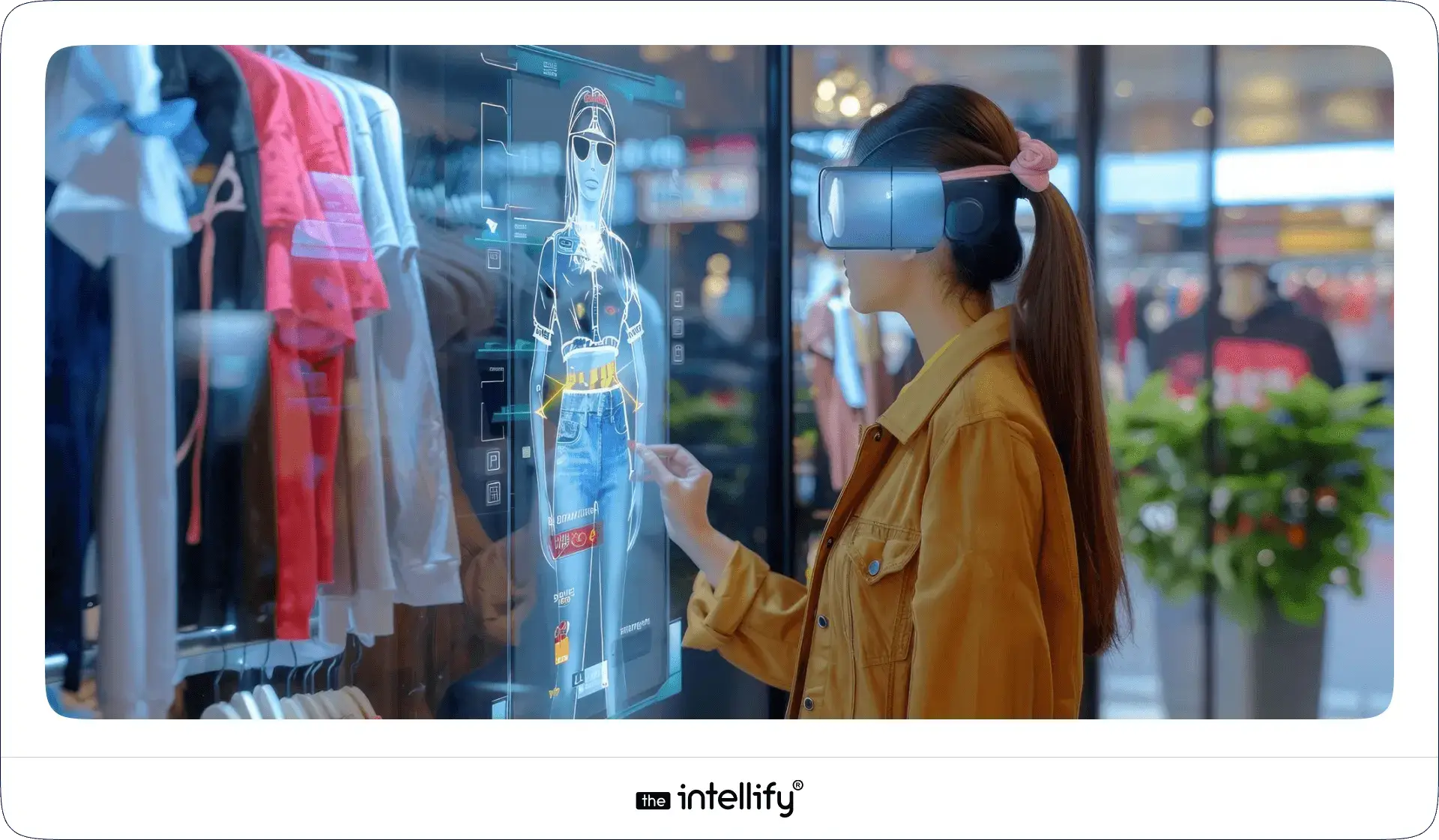
The future of retail is AI-driven. Here are some trends to watch:
- AI Shopping Assistants: Virtual assistants that guide shoppers, make recommendations, and handle purchases seamlessly.
- Agentic Commerce: AI agents can autonomously handle tasks such as negotiating prices, reordering stock, or curating products for customers.
- Generative AI for Creative Work: AI will create product descriptions, marketing materials, and even product designs faster and at scale.
- Predictive Customer Behavior: AI will anticipate customer needs and suggest products even before shoppers search for them.
- Voice and Visual Shopping: Voice commands and image-based search will become integral to the shopping experience.
- Sustainable Retail with AI: AI will help optimize logistics, reduce waste, and promote eco-friendly practices.
Early adoption of these technologies will give retailers a competitive edge in a rapidly evolving market.
Implement AI Solutions in Retail with The Intellify
At The Intellify, we specialize in delivering AI-powered solutions tailored for the retail industry. Our services are designed to help businesses enhance customer experiences, optimize operations, and drive growth. Here’s how we can assist you:
- Predictive Analytics & Demand Forecasting: Use AI to anticipate customer needs, optimize inventory, and minimize stockouts or overstock issues.
- AI Chatbots & Virtual Assistants: Provide 24/7 personalized support, answer queries, guide purchases, and improve overall customer engagement.
- Computer Vision & In-Store Analytics: Monitor foot traffic, optimize store layouts, track product placement, and enhance merchandising strategies.
- Generative AI Solutions: Automate the creation of product descriptions, marketing content, and virtual try-on experiences to accelerate time-to-market.
- AI-Powered Personalization: Deliver tailored product recommendations, dynamic pricing, and targeted promotions for each shopper, driving loyalty and higher sales.
We focus on delivering scalable, ethical, and practical AI solutions that drive measurable results. Whether you’re an eCommerce startup or a global retail chain, The Intellify can create a roadmap to implement AI successfully.
Conclusion
AI is transforming retail from the ground up by enhancing customer experiences, optimizing operations, and enabling smarter decisions. Retailers that embrace AI will gain a significant advantage, while those that wait risk falling behind.
From personalized recommendations to predictive analytics and generative AI, the opportunities are endless. With the right strategy, data, and expert guidance, AI can unlock growth, efficiency, and loyalty like never before.
Embrace AI today and let The Intellify guide your retail business toward a smarter, customer-focused future.
Frequently Asked Questions (FAQs)
1. What is AI in Retail?
AI in retail is the use of advanced technologies to help businesses understand customers, improve operations, and make smarter decisions. It analyzes shopping patterns, predicts demand, automates routine tasks, and creates personalized experiences for shoppers.
2. How Does AI Improve Customer Experience in Retail?
AI improves customer experience by offering personalized product recommendations, assisting with virtual try-ons, and providing instant support through chatbots. Customers get faster responses and tailored suggestions, making shopping more engaging and convenient.
“AI allows retailers to connect with customers in a more meaningful way by improving loyalty and satisfaction.” – The Intellify
3. What Are Some Real-World Examples of AI in Retail?
Retailers are using AI in multiple ways, including personalized shopping recommendations, automated inventory management, 24/7 customer support via chatbots, and image-based product search. These applications enhance both online and in-store experiences.
4. What Are the Benefits of Implementing AI in Retail?
AI brings several benefits to retail businesses: reducing manual work, cutting costs, predicting trends, improving stock management, and providing insights into customer behavior. Overall, it helps retailers become more efficient and customer-focused.
“Retailers leveraging AI can save costs, optimize processes, and create smarter, data-driven strategies.” – The Intellify
5. How Can Retailers Integrate AI Solutions Effectively?
Effective AI integration involves identifying key business needs, choosing the right AI tools, training teams to work with new systems, and continuously monitoring AI performance. Starting small with pilot projects ensures measurable results before full-scale implementation.
6. What Are the Future Trends of AI in Retail?
Future trends include AI shopping assistants, agentic commerce where AI performs tasks autonomously, generative AI for product content and design, voice and visual search, and sustainability-driven AI solutions to optimize resources and reduce waste.
7. How Can The Intellify Help Retailers Implement AI Solutions?
The Intellify offers tailored AI solutions for retailers, including predictive analytics, AI-powered chatbots, computer vision for in-store insights, and generative AI for content creation. We help businesses integrate AI effectively to enhance customer experience, streamline operations, and drive growth.
